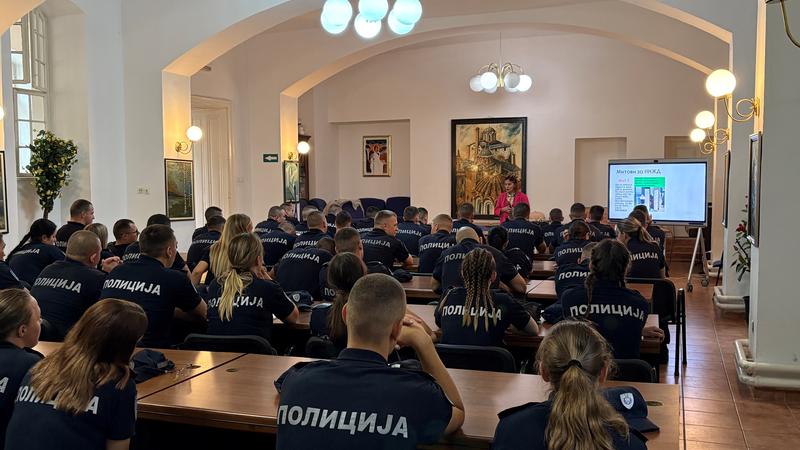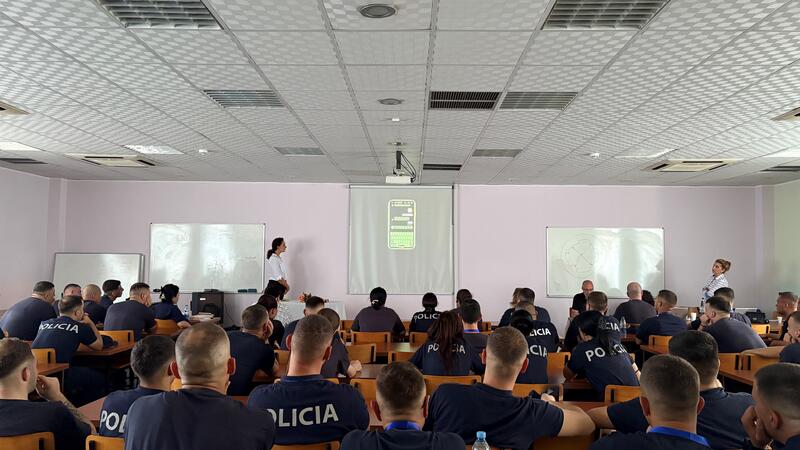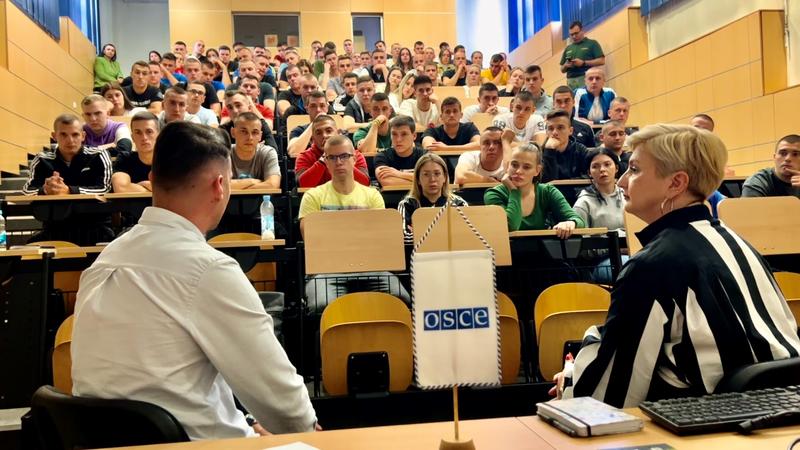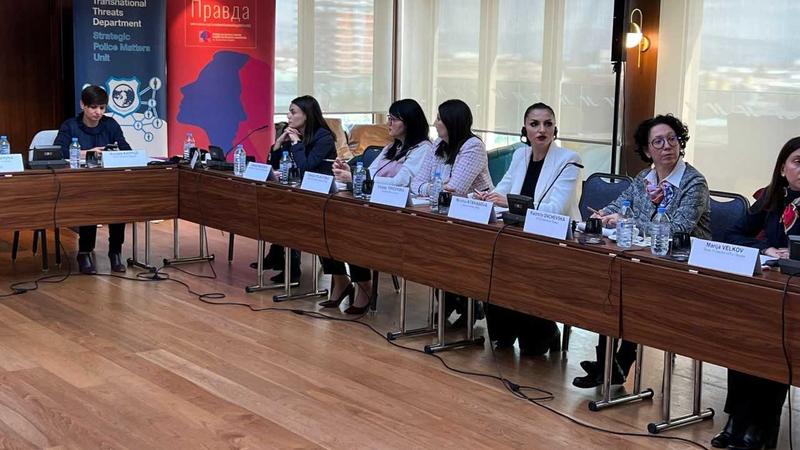Project
Enhancing Criminal Justice Capacities for Combating Gender-based Violence in South-Eastern Europe


Quick links
- Project period:
- 1 July 2021 - 31 May 2024
- Implemented by:
- Transnational Threats Department
- Fields of work:
- Policing, Gender-based violence
Overview
Gender-based violence represents one of the biggest challenges for the societies in the South-Eastern Europe (SEE) countries. The launch of the 2018 OSCE Survey “Well-being and Safety of Women” shed new light on the levels of GBV in SEE and concluded that: (1) 88% (Albania); 67% (Bosnia and Herzegovina); 62% (Montenegro); 60% (North Macedonia) and 85% (Serbia) of women think that violence is “common/fairly common”. Further on, women are not consistently accessing services due to a lack of trust in the judicial institutions, fearing stigma, shame and secondary victimization.
This project aims at enhancing the capacities of criminal justice systems from Albania, Bosnia and Herzegovina, Montenegro, North Macedonia and Serbia for preventing and combating GBV thus increasing the public trust in the criminal justice response and subsequently the level of reporting of GBV cases. By including all actors dealing with GBV (such as law enforcement and justice practitioners, social services, and civil society organizations) and co-ordinating with healthcare and educational institutions, the project ensures a comprehensive approach leading to a comprehensive response to GBV. Further on, through its regional approach, the project will contribute to improving general and specific co-operation among the key institutions and civil society organisations of the five participating States: Albania, Bosnia and Herzegovina, North Macedonia, Montenegro and Serbia, who will be the main beneficiaries of the project.
The project touches upon two major areas of intervention: (1) efficient, co-ordinated and comprehensive responses to GBV by key institutions and civil society organizations and (2) awareness raising on GBV for general public and judicial practitioners.
The first project goal is to increase the effectiveness of criminal justice practitioners (in particular first-responder police officers, investigators and prosecutors) in responding to cases of GBV and maintaining a co-ordinated and survivor-centred approach when dealing with such cases.
The second project goal is to increase the awareness of gender stereotypes and prejudices, causes, signs, signals and effects of GBV among criminal justice practitioners and public thus contributing to an organizational and cultural change.
In the intermediate term (in approximately 5 to 7 years after the completion), the project should contribute to an increased public trust in the criminal justice response to GBV and subsequently a higher level of reporting of GBV cases. In the long term (20 - 25 years after the completion), the project should contribute to achieving more stable and peaceful societies where women and girls live free from violence and enjoy equality with men in the public and private spheres.
The project adopts a comprehensive approach to the matter, by focusing on including all actors dealing with GBV (such as police officers, justice practitioners, social services, civil society organizations providing specialized support etc.).
Through a combined approach, the project aims at improving national stakeholders’ knowledge, understanding of and sensitiveness towards the phenomenon of GBV with a view to strengthening prevention of further violence and re-victimization, as well as to improving the States’ ability to respond to GBV (capacity building – training activities). This output will be supported with an information campaign aiming at the “de-normalization” of GBV and the de-stigmatization of victims by promoting a national policy of zero tolerance against the phenomenon (awareness activities).
The project concept has been drafted in co-ordination with the Council of Europe, OSCE Gender Issues Programme, ODIHR and the OSCE field operations in the South-Eastern Europe region.
The project concept has been drafted in co-ordination with the Council of Europe, OSCE Gender Issues Programme, ODIHR and the OSCE field operations in the South-Eastern Europe region, building on the good practices and lessons learnt from the implementation of the pilot project, in Eastern Europe, between 2018-2020. More information about the pilot project and deliverables can be found at: Effective Criminal Justice Strategies and Practices to Combat Gender-based Violence in Eastern Europe | OSCE and Deliverables of the Project "Effective Criminal Justice Strategies and Practices to Combat Gender-based Violence in Eastern Europe" (2018-2020) | OSCE POLIS

























